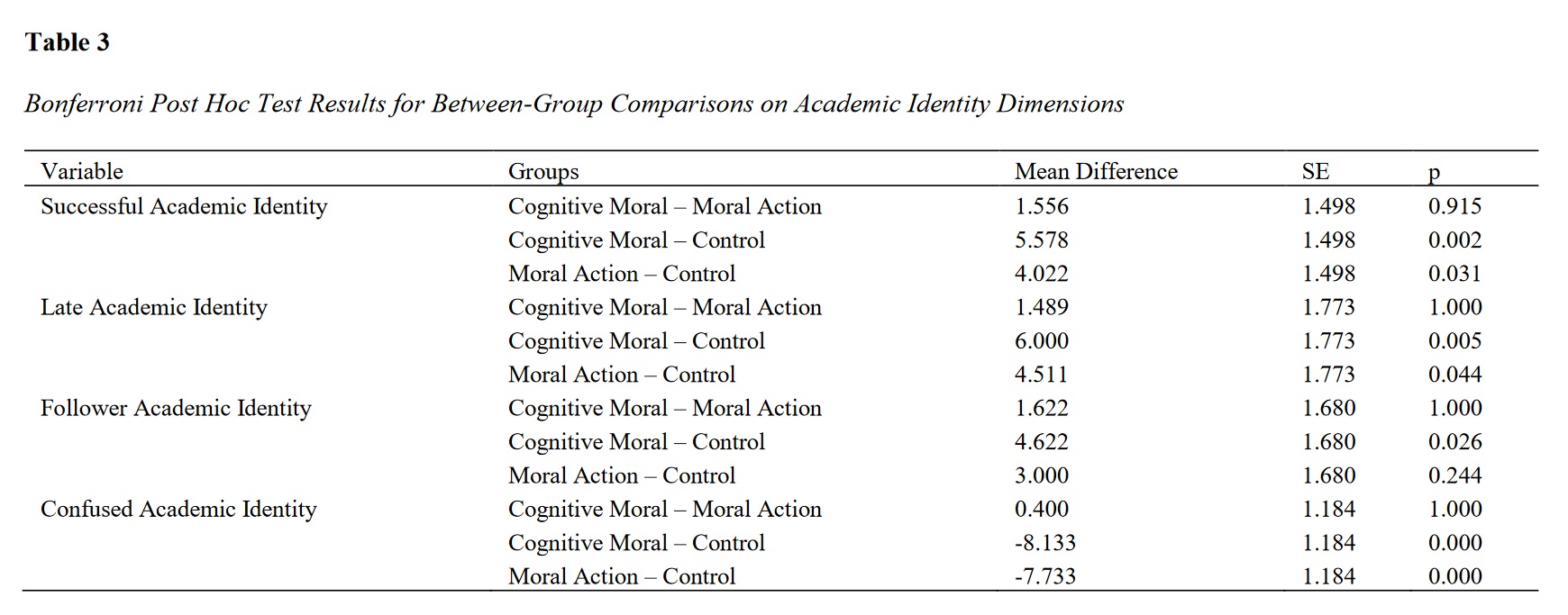Comparison of the Effectiveness of Cognitive Moral Education and Moral Action Education on the Academic Identity of Female Students with a Positive Attitude Toward Academic Cheating
Keywords:
Cognitive Moral Education, Moral Action Education, Academic Identity, Academic CheatingAbstract
Objective: Considering the importance of fostering honesty as one of the key objectives of the educational system and identifying factors that influence students' engagement in academic cheating, as well as to enhance students' academic identity, it is essential to provide education in this regard.
Methods and Materials: This research utilized a quasi-experimental method with a pre-test, post-test, and follow-up design including a control group. The statistical population of this study included all second-year high school female students in Sari city during the academic year 2021-2022. A sample size of 45 students was calculated using multi-stage cluster sampling. Through random assignment, 15 students were allocated to experimental group A (related to cognitive moral education), 15 students to experimental group B (related to moral action education), and 15 students to the control group. The Vaz and Isaacson (2008) Academic Identity Questionnaire was used. Data were analyzed using descriptive and inferential statistics (repeated measures ANOVA and Bonferroni post hoc test) with SPSS software version 24.
Findings: Changes from pre-test to post-test in successful, late, and follower identity showed an increase, whereas in confused academic identity there was a decrease. Additionally, a significant difference was observed in the follow-up stage compared to the pre-test. There is no difference between the effectiveness of cognitive moral education and moral action education on the academic identity of female students with a positive attitude toward academic cheating.
Conclusion: Cognitive and moral action education impacted the academic identity of female students with a positive attitude toward academic cheating, leading to a high level of competence, capability, and self-worth among students.
Downloads

Downloads
Additional Files
Published
Issue
Section
License
Copyright (c) 2024 Maryam Fallahpour (Author); Ramezan Hassanzadeh (Corresponding Author); Seyedeh Olia Emadian (Author)

This work is licensed under a Creative Commons Attribution-NonCommercial 4.0 International License.














